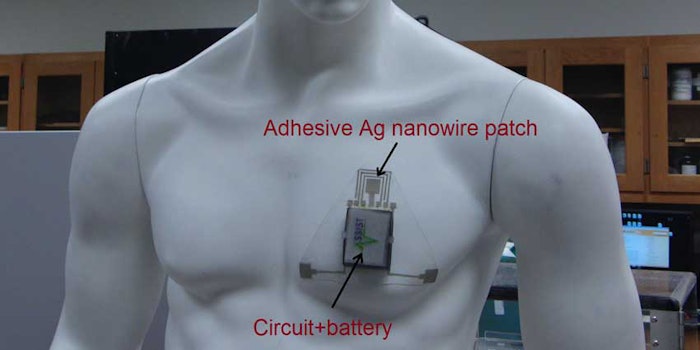
To detect dehydration in a person's skin prior to any health problems occurring, researchers have developed a wireless sensor to monitor an individual’s hydration.
Based from North Carolina State University, the researchers developed the wearable device to be lightweight, flexible and stretchable. The researchers incorporated the sensors into a wristwatch or a chest patch, which can wirelessly transfer sensor data to a program and can then be run on a smartphone, tablet or computer. This gives data access to both the user and third parties such as a doctor or officer in a military setting.
Tracking Hydration
John Muth, a professor of electrical and computer engineering at NC State and co-corresponding author of a paper describing the work weighed in on the measurement of hydration.
“It's difficult to measure a person's hydration quantitatively, which is relevant for everyone from military personnel to athletes to firefighters, who are at risk of health problems related to heat stress when training or in the field,” said Muth.
Yong Zhu, an associate professor of mechanical and aerospace engineering at NC State and co-corresponding author of the paper added to Muth’s insight.
"We have developed technology that allows us to track an individual's skin hydration in real time,” said Zhu. “Our sensor could be used to protect the health of people working in hot conditions, improve athletic performance and safety, and to track hydration in older adults or in medical patients suffering from various conditions. It can even be used to tell how effective skin moisturizers are for cosmetics.”
Measuring Hydration Levels
The sensor consists of two electrodes, which monitor the electrical properties of the skin. The electrodes are made of an elastic polymer composite, which contains conductive silver nanowires. Readings from the electrodes show how hydrated an individual’s skin is.
While using custom-made artificial skins with a broad range of hydration levels in lab testing, the researchers discovered the wearable sensor’s performance was not affected by ambient humidity. However, the sensors were equally accurate in size, expense and availability as a hydration monitor operating on similar principles, but using rigid wand-like probes.
Cost-Efficient
In addition to the benefits of the sensor, Shanshan Yao, a Ph.D. student at NC State and lead author of the paper explained how this sensor is relatively inexpensive.
“The commercially available monitor we tested our system against costs more than $8,000,” said Yao. “Our sensor costs about $1 and the overall manufacturing cost of the wearable systems we developed would be no more than a common wearable device, such as a Fitbit.”










